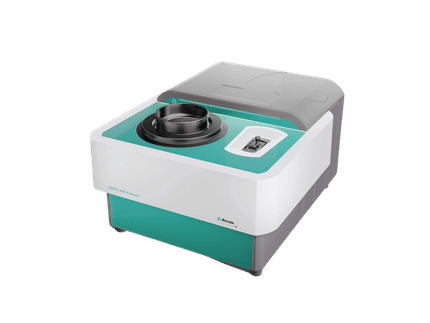To use all functions of this page, please activate cookies in your browser.
my.chemeurope.com
With an accout for my.chemeurope.com you can always see everything at a glance – and you can configure your own website and individual newsletter.
- My watch list
- My saved searches
- My saved topics
- My newsletter
Occidental Petroleum
Occidental Petroleum Corporation ("Oxy") NYSE: OXY is an international oil and gas exploration and production company with operations in the United States, the Middle East, North Africa, and South America. The company nickname “Oxy” began in 1964 in reference to Occidental’s NYSE stock ticker. Headquartered in Los Angeles, California, Oxy is the fourth largest U.S. oil and gas company, based on equity market capitalization. Oxy is the largest oil producer in Texas and the largest natural gas producer in California, with additional operations in Kansas, Oklahoma, Colorado and New Mexico. Oxy's wholly-owned subsidiary, OxyChem, manufactures and market chlor-alkali products and vinyls. Product highlight
HistoryOxy was founded in 1920. In 1957 Dr. Armand Hammer was elected president and CEO. In 1961, Oxy discovered California's second largest natural gas field in the Arbuckle area of the Sacramento basin at Lathrop. Over the next 10 years, Oxy expanded worldwide operations with efforts in Libya, Peru, Venezuela, Bolivia, Trinidad and the United Kingdom. Occidental won exploration rights in Libya in 1965 and achieved exploration and development success until all activities were suspended in 1986 as the result of economic sanctions imposed by the United States government. In 1968, Oxy entered the chemical business with the acquisition of Hooker Chemicals. This was 26 years after the contamination at Love Canal. On July 6, 1988 a fire on Piper Alpha, an oil platform in the North Sea, caused the biggest disaster in offshore oil industry's history. Today Occidental Chemical Corporation (OxyChem) is a leading chemical manufacturer with interests in basic chemicals, vinyls and performance chemical products. In 1994, Dr. Ray Irani became President and CEO of Oxy. OperationsOil and Gas OperationsOccidental’s oil and gas growth strategy relies on three components: Enhanced Oil Recovery (EOR), Exploration and Acquisitions. Oil and Gas operations are focused in three core areas, the United States, the [[Middle East]/North Africa, and South America. In South America, Oxy operates in Argentina, and Colombia. In the Middle East, oxy has operations in Oman, Qatar, United Arab Emirates, and Yemen. Libya is its sole North African operation. In the United States--which accounts for 70 percent of its oil and gas reserves and 60 percent of current production--Oxy is the fourth largest oil and gas company.[1] Occidental is the largest producer of natural gas in California, and the largest oil producer in Texas.[2][3] Oxy also has operations in Kansas and Oklahoma. Occidental formerly operated in Ecuador, but interest in Block 15 in the Ecuadorian Amazon was ended by the nation's government in 2006.[4] Chemical OperationsControversiesInvolvement at Love Canal
In 1942, Hooker Chemical and Plastics Corporation began disposing chemical waste in the Love Canal region. Other companies and the US military had used it as a chemical disposal site since the 1920s. In 1947, Hooker Chemicals became the owner and sole user of the land. In 1952 the site was filled to capacity and closed off. Later in the 1950s the local school board convinced Hooker, after threatening to use eminent domain, to sell the land to them with the intent of building a school on an unused area of the dump. Hooker Chemical sold the land to the school board for $1, with the formal caveat that the site contained waste products resulting from the manufacturing of chemicals, and disclaiming all subsequent liability. The school was built on the site and later a middle-class residential district was built upon land adjacent to the site; the associated construction broke through the 4 foot (1.2 meter) clay seal containing the waste. In 1968, Hooker Chemical was purchased by Occidental Petroleum. In 1978, residents became concerned about unusual health issues in the Love Canal region, including high rates of cancer and birth defects. Soon after it became a national issue, and in 1980 then president Jimmy Carter declared a federal emergency in the area. Residents of the area were eventually relocated and Occidental paid $129 million in restitution.[5] Piper Alpha disaster
In July 6, 1988 Occidental's Alpha offshore production platform in the Piper oilfield in the North Sea exploded after a gas leak. 167 workers lost their lives in the world's worst offshore disaster. All the worker's salaries were calculated up to the moment of the explosion; thus the survivors and the families of those who were killed were only paid a very small amount of the salary owed. Caño Limón massacreOn December 13, 1998, Seventeen civilians, including 7 children, were killed as a result of the bombing of the hamlet of Santo Domingo, Colombia. The attack was carried by a Colombian Air Force helicopter using a U.S. cluster bomb. The L.A. Times documented the attack and showed that this bombing was carried out at the behest of Occidental Petroleum which provided the skymaster plane utilized by its security contractor (AirScan) to give the coordinates for the bombing and which hosted the planning of the bombing raid at its offices in Caño Limón, Colombia.[6] A law suit was attempted in April, 2003 against Occidental Petroleum by Luis Alberto Galvis Mujica, a witness and survivor of the massacre.[7] Recent opportunities and resistanceFrom 1992 to 2001, Occidental Petroleum incurred substantial resistance in its attempts to drill for oil in the territory of the U'wa people in northeast Colombia. The resistance was apparently over concern for environmental damage, tribal beliefs (the group believe that oil is the "blood of the earth" and should not be removed) and fear that development would bring strangers and violence to their region. They believe oil infrastructure will be a target for violent leftist guerillas in the country. After years of shareholder resolutions, legal battles, extensive civil disobedience and a failed test well, the company abandoned the project, which is now continued by Repsol YPF. In 1998, the US Government sold the Elk Hills Naval Petroleum Reserve to Occidental Petroleum for USD 3.65 billion. The advertised purpose of this sale was to reduce the national debt, and reduce the size of government, as the Reserve was no longer strategically necessary. Critics of government cited Vice President Al Gore's involvement with the company as proof of graft.[8] In 2005, Occidental Petroleum and partner Liwa won eight out of fifteen exploration spots on the EPSA-4 auction, making both companies among the first to enter the Libyan market since the United States lifted its embargo on that country. In August of the same year, the company was accused of 42 legal violations in Ecuador, including environmental destruction and espionage. As a result the Ecuadorian government refused to renew a contract for oil field exploration. Ecuadorian protestors in the northeast part of the country are calling for the withdrawal of Occidental.[citation needed] Outstanding lawsuitsOn May 10, 2007, a group of 25 indigenous Achuar Peruvians filed suit against Occidental Petroleum, demanding cleanup and reparations for environmental damages allegedly caused by Occidental over a period of 30 years, during which time the company ignored industry standards and environmental regulations by dumping a total of 9 billion barrels of toxic oil byproducts in watersheds used by the Achuar people for fishing, drinking, and bathing. The Achuar are represented by Los Angeles-based EarthRights International (ERI) and the law firm Schonbrun DeSimone Seplow Harris & Hoffman LLP (SDSHH).[9] The Greenmail caseIn 1984, David Murdoch owned about 5% of Occidental Petroleum's stock, and he put pressure on Occidental's management to take action to improve the value of its stock. The firm chose to pay greenmail to buy back shares from David Murdoch at $40.10 while the market price was $28.75. Gore family tiesOccidental's coal interests were represented for many years by attorney and former U.S. Senator Albert Gore, Sr., among others. Gore, who had a long-time close friendship with Hammer, became the head of its subsidiary Island Creek Coal Company upon his election loss in the Senate. Much of Oxy's coal and phosphate production was from Tennessee, the state Gore represented in the Senate, and Gore owned shares of stock in the company. Because the stock passed to his estate after his death, his son and executor at the time, former Vice President Albert Gore, Jr. received much criticism from environmentalists.[8][10] However, Al Gore Jr. did not exercise control over the stock, which was eventually sold when the estate closed.[11][12] Environmental recordResearchers at the University of Massachusetts Amherst have identified Occidental Petroleum as the 47th-largest corporate producer of air pollution in the United States, with roughly 1.2 million pounds of toxic chemicals released annually into the air.[13] Major pollutants indicated by the study include chlorine, antimony compounds, benzotrichloride, and hydrochloric acid. [14] The Environmental Protection Agency has named Occidental as a potentially responsible party for at least six Superfund toxic waste sites.[15] BusinessesOccidental Oil & Gas Corporation Occidental Chemical Corporation References
|
|||||||||||||||||||||
| This article is licensed under the GNU Free Documentation License. It uses material from the Wikipedia article "Occidental_Petroleum". A list of authors is available in Wikipedia. | |||||||||||||||||||||







